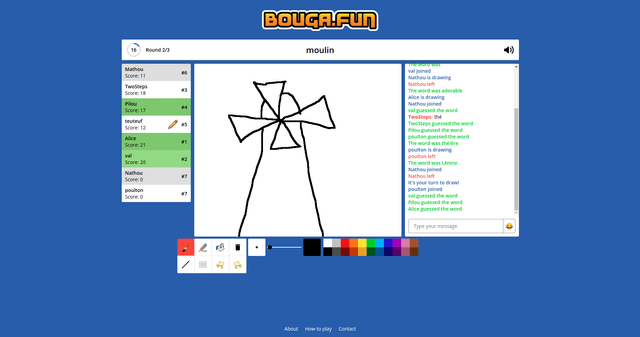Young graduates are taking the brunt of the current health crisis. The tech sector, which was previously spared by the drop in recruitment, is no longer an exception and young developers are struggling to find work.
Why? Companies are reluctant to trust junior profiles, considered trickier to onboard and manage remotely. However, solutions exist for those that are willing to take a leap of faith (and we think you should!).
Companies are hiring less junior profiles, even in IT
According to the 2020 World Youth Report released last month by the UN Department of Economic and Social Affairs, unemployment among the world’s 1.2 billion young people is far higher than for adults.
COVID-19 has worsened their outlook for job prospects. The International Labour Organization reports that in the first quarter of 2020, about 5.4% of global working hours, equivalent to 155 million full-time jobs, were lost relative to the fourth quarter of 2019.
The future of job searches and job creation will be an uphill struggle due to the losses seen this year. Estimates dating from before the pandemic suggest that 600 million jobs would have to be created in the next 15 years to meet youth employment needs.
Companies are going remote and it’s making it harder for young developers to find work
Companies have been forced to adapt to the health crisis by massively offering full-time teleworking opportunities for tech professions.
According to the latest CodinGame survey on Covid-19 and remote work in the tech sector, 73.6% of developers are now working full-time from home, against only 15% before the health crisis.
Hiring a young person in today’s context of remote work presents additional challenges that not all companies are ready to take on. Indeed, teleworking requires a high level of autonomy from employees, young graduates need closer supervision, and are generally less quickly operational in their position than more experienced profiles.
However, despite the risks involved, Frédéric Desmoulins, CEO at CodinGame, strongly urges companies to keep their doors open to budding developers.
“There’s a direct link between remote work and the lack of jobs being offered to young talent. Remote onboarding of junior developers is riskier. It’s trickier to ensure that they level up and acquire any missing skills from a distance. Younger developers can find it hard to organize their work independently, and often lack a dedicated workspace at home. However, refusing to put your trust in young developers is a mistake that will hinder your company’s growth and exacerbate existing inequalities.”
How to improve the way you work with young developers remotely
Tech internships, work-study programs, first jobs: hiring young people to work from home often means that it will be more complicated to provide them with the support they need.
Many companies are throwing in the towel and turning to senior developers or freelancers, who are better accustomed to working independently from home.
Maxime Chéramy, Senior Software Engineer at CodinGame, explains:
“When working in the same, real-life, environment, a large part of communication with teams is non-verbal. A young recruit huffing and puffing in front of his workstation or spending long minutes staring into space probably needs help, and that’s when we come over to intervene. Via video or messages, it’s much more complex to detect signs that someone’s struggling. What’s more, admitting that you’re in a difficult situation or that you are stuck on a project can be very difficult for a young person who really wants to make a good impression. Managers must be proactive”.
Here are 5 ways to improve the way you work with young developers remotely:
- Set up daily exchanges between junior developers and managers
It doesn’t have to be an hour-long discussion, but booking in a quick 15-minute daily call can go a long way.
A recurring slot will reassure junior developers. They can take note of any questions or doubts they might have, and know that they’ll be able to find a solution with their manager within the next 24 hours!
Obviously, if an emergency arises and they need to grab the phone, reassure them that that’s ok too!
- Set clear and precise objectives
Make sure that junior developers know and understand project objectives. Also, make sure that they know where to find them if they need to refer back. Project management software like Jira, Gitlab, Trello or ClickUp are great places to document and follow-up on objectives and milestones.
- Make room for informal exchanges
Encourage regular informal conversations and virtual get togethers. Whether it’s at lunchtime, after hours, or for a morning tea break, it’s important to cultivate relationships and ease any underlying tensions.
Here at CodinGame, for example, the tech team enjoys quick, fun, game sessions. One of our talented developers even created his own free, online pictionary game: bouga.fun.

- Set up a mentor program
Set up a buddy or mentor system to give new developers a go-to person they can always ask for help or advice.
Younger developers especially might find it easier to turn to a mentor rather than a superior. Junior developers will benefit from the feedback and expertise of more senior employees.
This is especially important for new arrivals, as part of a remote onboarding program.
- Prefer vocal communication
For anything that leaves room for interpretation or requires explanation, always favor vocal communication. Yes, a vocal conversation can be daunting at times, but it will most probably save you time and energy in the long run.
Extra idea: rather than a one-to-one vocal conversation, why not organize virtual work sessions? A small group can log into a video conference (Google Meet, for example), only to leave the window open in the background, while working on their respective projects. This way, they can share interesting findings, ask questions, and generally interact naturally – as they would in the office!

